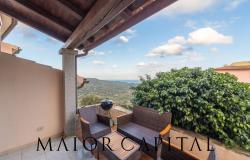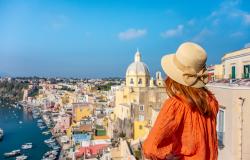 (ANSA) - Romano Prodi was anointed the leader of the Italian opposition on Monday after thrashing potential rivals in the country's first-ever 'primary' elections.
(ANSA) - Romano Prodi was anointed the leader of the Italian opposition on Monday after thrashing potential rivals in the country's first-ever 'primary' elections.
Prodi said he was overwhelmed by the result.
"I am even happier than yesterday... The fact that more than four million people turned out to vote is not something to be taken lightly. It means there is a great desire for change. I would have been satisfied with 60,000-70,000 voters," he said.
"This was a great victory of the people... This is a strong message to the government and we will start preparing to govern," said Prodi, who beat Berlusconi in the 1996 elections only to be brought down some two years later by Bertinotti.
The idea of the unprecedented primaries was to confirm and consolidate Prodi's leadership of the often fragile opposition alliance and prevent a replay of his fall should he win general elections in the spring of 2006. The former economics professor fared particularly well in the north, garnering 86% in his home region of Emilia-Romagna and almost 80% in Tuscany and Veneto. In the southern regions and Sicily, support for Prodi dipped to 60-65%.
The former premier and European Commission chief won 74.1% of the vote, far outstripping his closest competitor Fausto Bertinotti of the Communist Refoundation Party (PRC) who gained less than 15%. Some 4.3 million centre-left supporters voted in the Sunday ballot, opposition officials said.
Political observers said the unexpectedly high turnout was partly due to frustration at Premier Silvio Berlusconi's government and anger at its last-minute electoral reform plan seen as penalising the opposition coalition. There was also a rush of support for Prodi, analysts said, for fear that the PRC's naturally more militant voters might give Bertinotti too much say in policy-making.
Of the six other aspirers to the opposition throne, Clemente Mastella of the centrist, Catholic UDEUR came third with 4.6%, former Clean Hands prosecutor Antonio Di Pietro came fourth with 3.3% and Green Party leader Alfonso Pecoraro Scanio came fifth with 2.2%.
Voters were required to sign a form saying they supported the opposition's agenda and pay one euro as a contribution to the costs of the ballot. Because of the unexpectedly high turnout, many polling stations ran out of voting slips while the funds collected came to some 40 million euros as supporters gave more than their token euro.
PRODI PUTS EMPHASIS ON UNITY
Prodi told his coalition on Monday that the vote had demonstrated the need for alliance unity.
"Our voters have asked for unity and I have to give a very strong and clear answer to that request," he told his allies. Democratic Left leader Piero Fassino, whose party is the largest in the opposition, branded Mastella's statements as "wholly off-colour, over the top and ungenerous."
He said they were "offensive towards the four million people who voted." But Bertinotti also responded ambiguously to the primary outcome.
"Each political force has its own identity and path to follow," said the hard-left leader, who ran alone in the previous, 2001 elections.
"This coalition will be strong if it takes advantage of its pluralism... there were so many voters because it was possible to choose between different candidates," he said.
CENTRE-RIGHT CONTESTS VOTING FIGURES
Meanwhile, members of the centre-right governing coalition accused the opposition of inflating voting figures. Justice Minister Roberto Castelli said that "there is no proof of the figures being circulated by the centre left. Knowing their methods, they have certainly been inflated... this was a perfect example of Soviet-style politics."
Foreign Minister and Deputy Premier Gianfranco Fini said that "the turnout figures seem to me to be a little excessive. I don't know if, as Mastella says, there was fraud going on. He would certainly know more about that than me." Fini also questioned the utility of primaries given the government's bid to return to proportional representation. Casini, the president of the Parliament, pointed out that such a public display of democracy should always be respected.
Italy's current electoral system allocates 25% of parliamentary seats by proportional representation and the rest with a first-past-the-post system based on constituencies. The government's controversial electoral reform bill would introduce an entirely proportional system and is being rushed through parliament.
It won a green light from the House last week and now goes before the Senate.
Berlusconi said after the House vote that he was confident the bill would pass because it was a "completely democratic law. It removes a number of problems with the current law. Everything the opposition says is biased and untrue," he said.
The centre left heatedly opposes the reforms, arguing that voting rules should not be changed so close to a general election. It says such important reforms require the consensus of the opposition as well as the majority. It also says the reforms go against the will of voters, citing a 1993 public referendum in which Italians voted for the abolition of proportional representation.
Many political analysts agree the reforms could reduce the number of seats won by the multi-party opposition alliance, which is ahead of the four-party governing coalition in the opinion polls. The bill contains a clause whereby parties which obtain less than 2% of the national vote would not be represented in parliament and their votes would not go towards their alliance's overall tally.
There are six parties in the opposition coalition which might not exceed the 2% threshold. Many analysts also say the new system would increase government instability, giving undue influence to smaller parties. It poses a particular problem for Prodi because it requires candidates to stand with a party and he is not a member of any party.









